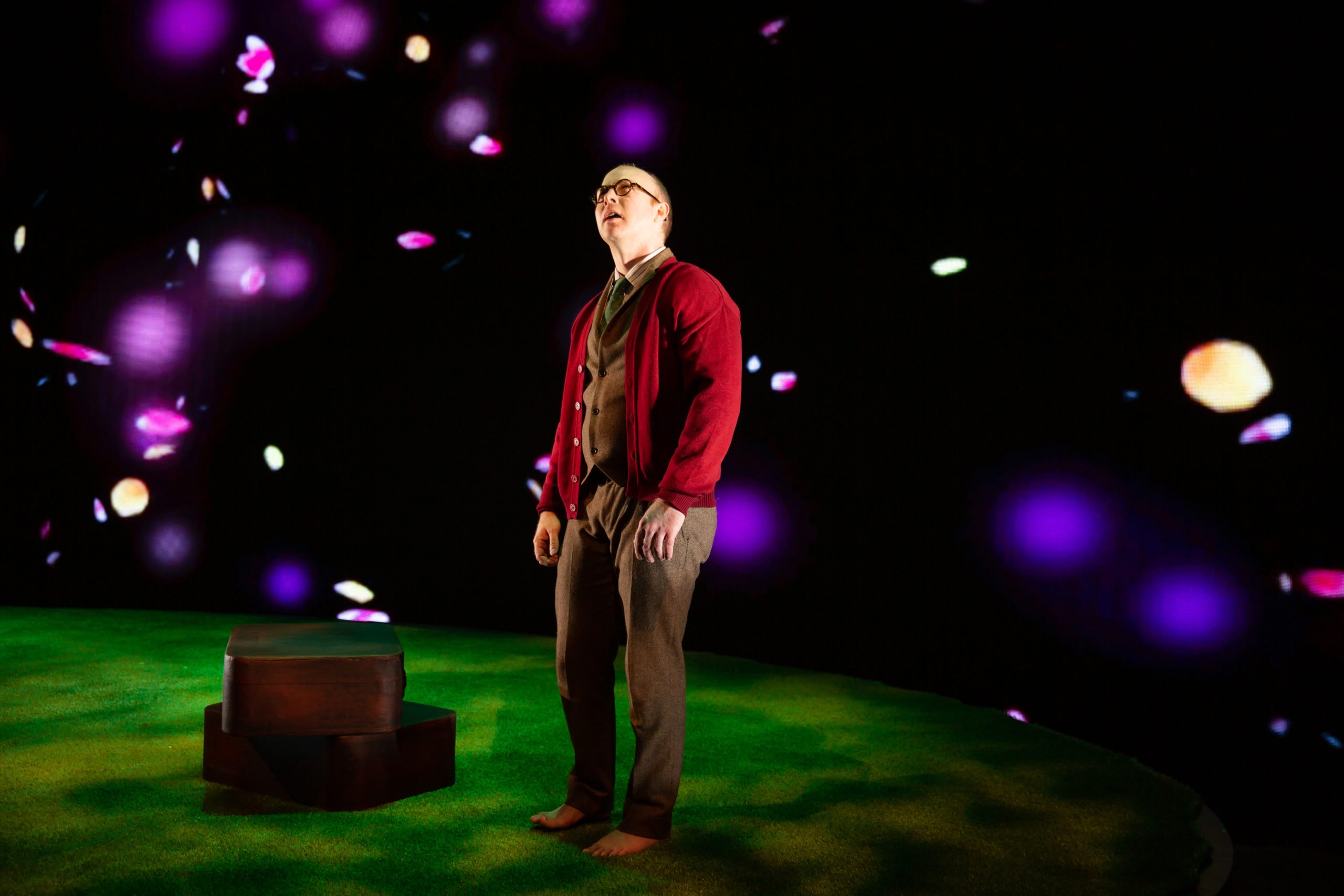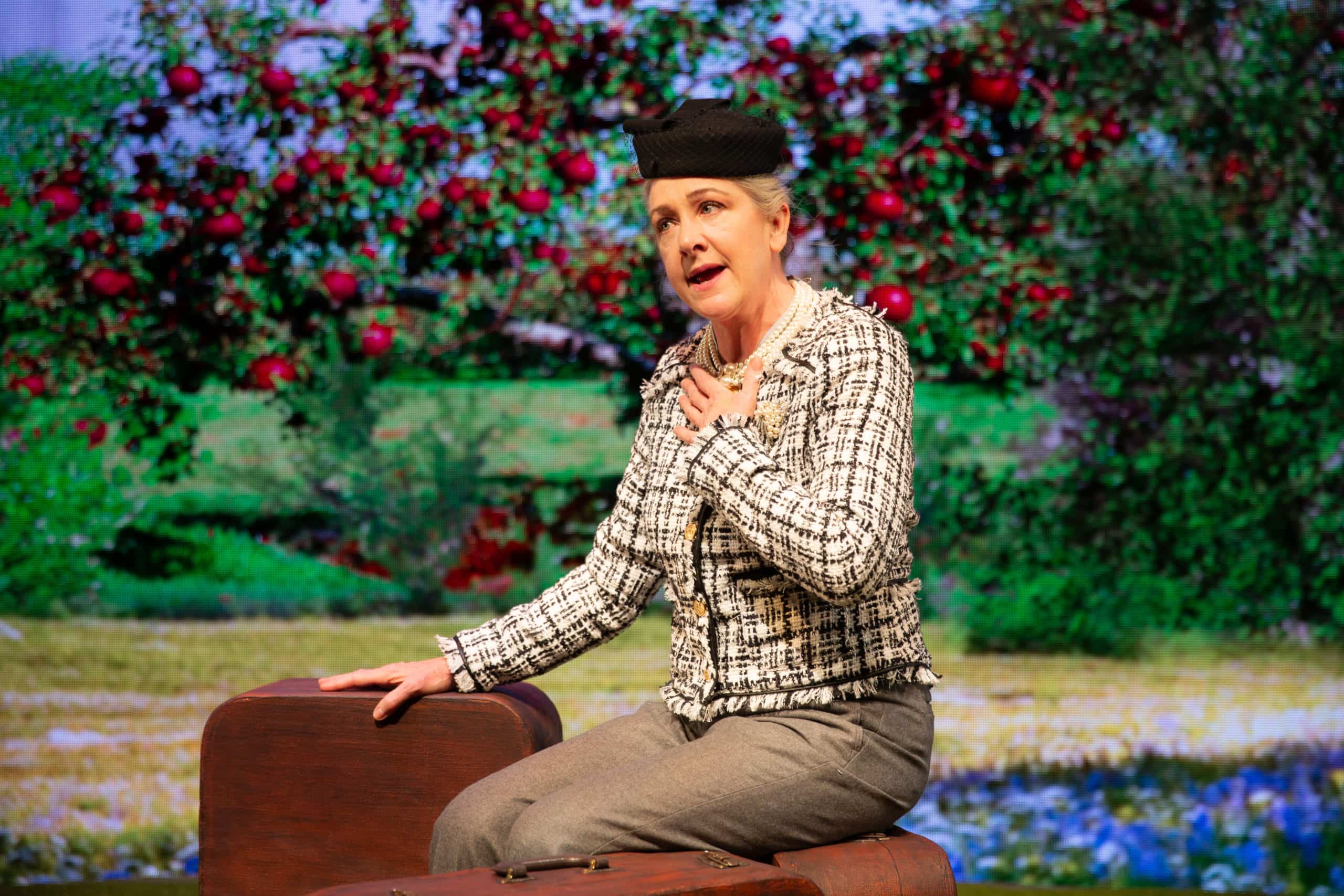C.S. Lewis is not for the fainthearted. While his Narnia series may have been the most successful in capturing the public imagination, his fascination with—and ability to articulate—advanced theological concepts for lay audiences was second-to-none. The Great Divorce falls into this category of Lewis’s writings. Adapted by Max McLean and directed by Christa Scott-Reed, this Fellowship for Performing Arts production takes the audience on a journey all the way through hell to the foothills of heaven.

Though the idea of purgatory gets only a genteel nod in Lewis’s Anglican tradition, The Great Divorce hones in on the question of resolving good and evil within the human soul. If God is all good and humans are fallen and “sick” with sin, then there must be some purgative action prior to their advancement to heaven. The Great Divorce confronts the audience with a variety of scenarios that show the pitfalls of behaviors which cause separation from God (i.e. sins) and how our good or bad choices impact the universe. More importantly, The Great Divorce addresses how we might be restored from this state in the afterlife. For those who are not well-versed in Christian theology, the work still provides much to consider in the way of philosophical arguments for the existence of objective truth over moral relativism.
This deeply engaging and cerebral play utilizes only four actors, with three of those actors playing twenty different parts in total. Joel Rainwater’s bespectacled Narrator serves as the anchor throughout. His encounters with the other characters shape how he proceeds through his own purgation. Tom Souhrada, Carol Halstead and Jonathan Hadley do a wonderful job of confronting him, as well as differentiating between the multiple people they portray.
Confrontation is truly the right word here, for each scenario presented convicts the Narrator (and possibly the audience) of some type of oversight that could easily exist in their own lives. For example, the ghost of a Bishop (Jonathan Hadley) appears before the Narrator. Pursued by a spirit (Carol Halstead) which seeks to bring him fully in line with his potential to advance to heaven, the Bishop reveals that he has drifted into disbelief and movement away from the most central dogmatic tenets of the Christian faith. The Bishop believes that we can’t know the truth, therefore faith should be left up to individual interpretation. He rejects advancement and exits the stage, presumably to return to hell. This brings us back to a central principle of Christianity: Heaven and hell are chosen states of being. Neither is forced on a person.
One particularly touching scene involves the Narrator encountering a ghost with a red lizard (played by Tom Souhrada) being confronted by a fiery spirit (Carol Halstead, again). The fiery spirit implores the ghost to give up the lizard so that she can kill it. At first, the ghost refuses by saying that giving it over to her will kill him. The lizard is clearly a stand-in for some sin the ghost committed which had overwhelmed him in life. The conclusion of this scenario is both satisfying and transformational.

This production relies a great deal on projections. For the most part, Projection Designer Rachael Cady’s work holds up and helps transport the audience to the various fantastical locales described by Lewis. Scenic Designer Kelly James Tighe gives us a sparse platform upon which the travelers place suitcases in different arrangements to suit the scenes throughout the play. It very much supports the “transitional” nature of the Narrator’s situation. I’d also like to express appreciation for Vocal Coach Claudia Hill-Sparks whose work likely assisted the actors in differentiating between so many characters—often through the use of accents.
The Great Divorce is truly a fantastic treatment of C.S. Lewis’s complex work. It may not be best for someone looking for a relaxing evening at the theater, but for those willing to stay intellectually engaged for the duration, it is supremely rewarding. This is a play that will stick with you long after curtain call.
Running Time: 85 minutes, with no intermission.
C.S. Lewis The Great Divorce runs through February 9, 2020, at Fellowship for Performing Arts playing at the Michael R. Klein Theatre at the Lansburgh—450 7th Street Northwest in Washington, D.C. Tickets can be purchased online.





I’m looking for the link to a review of Peace Mountain Theatre Company’s Production of Other Desert Cities, performed in December 201`9
https://dctheaterarts.org/2019/12/08/other-desert-cities-by-peace-mountain-theatre-challenges-and-shocks/